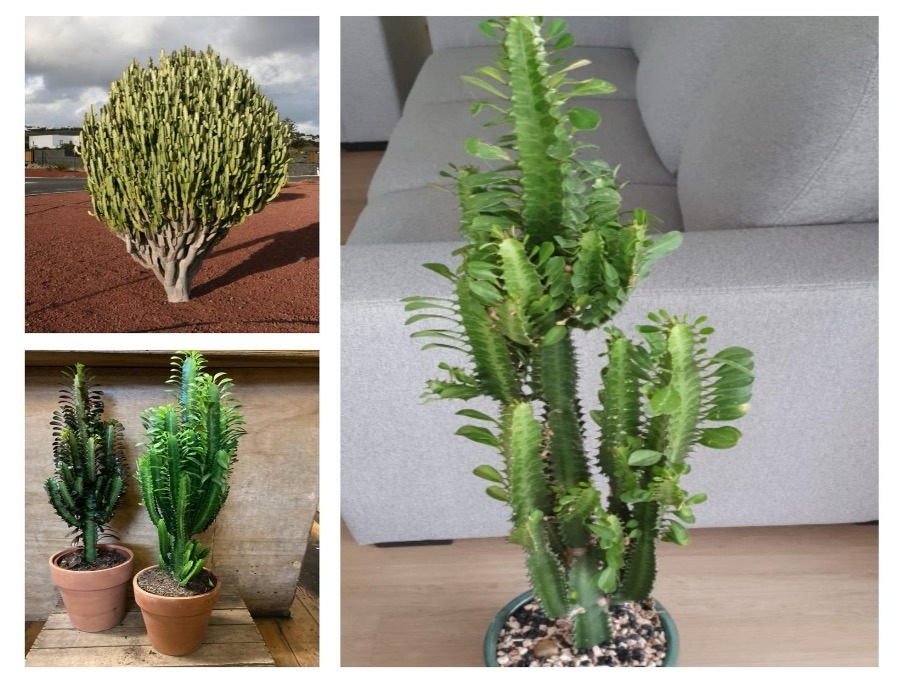Euphorbia trigona (African Milk Tree)
Euphorbia trigona, commonly known as the African Milk Tree, is a fast-growing, long-lived succulent with upright, triangular stems lined with spines and small, teardrop-shaped leaves along the ridges. Although it resembles a cactus, it belongs to the Euphorbia family. This low-maintenance plant is prized for its architectural shape and makes a striking decorative addition to indoor and outdoor spaces.


Care Requirements
Light:
Prefers bright, indirect light. Can tolerate full sun outdoors, but intense, direct light for prolonged periods may cause damage.Watering:
Drought-tolerant and requires minimal watering. Increase watering during the summer growing season. For indoor plants, water approximately once a week—ensuring the soil dries out between waterings.Soil:
Thrives in loamy, well-draining soil to prevent root rot and retain just the right amount of moisture.Temperature:
Grows best in temperatures between 65–85°F (18–27°C). Not frost-tolerant—avoid exposure to prolonged cold or freezing temperatures.
Care Tips
Avoid overwatering—ensure pots have drainage holes.
Rotate regularly to maintain even growth.
Handle with care, as the sap can be irritating to skin.
Common Problems
Leaf drop: May occur due to overwatering, low light, or sudden environmental changes.
Stem rot: Caused by excess moisture and poor drainage.
Sunburn: Appears as scarring or discoloration on stems when exposed to intense sunlight.
Additional Information
Toxicity:
Toxic to both humans and pets. The milky sap can cause skin irritation or rashes upon contact. Always wear gloves when handling and keep out of reach of children and animals.Pest Resistance:
Generally pest-resistant when healthy. Occasionally check for pests such as mealybugs. Treat infestations with rubbing alcohol or insecticidal soap.Air Purification:
Offers minimal air-purifying benefits but can contribute slightly to improved air quality.
Found EnviroCare
Expert guidance for your agricultural needs.
Contact
info@foundenviro.com
0420 354 157
© 2024. All rights reserved.
Powered by Logos Creative Solutions
ABN: 99412409221
